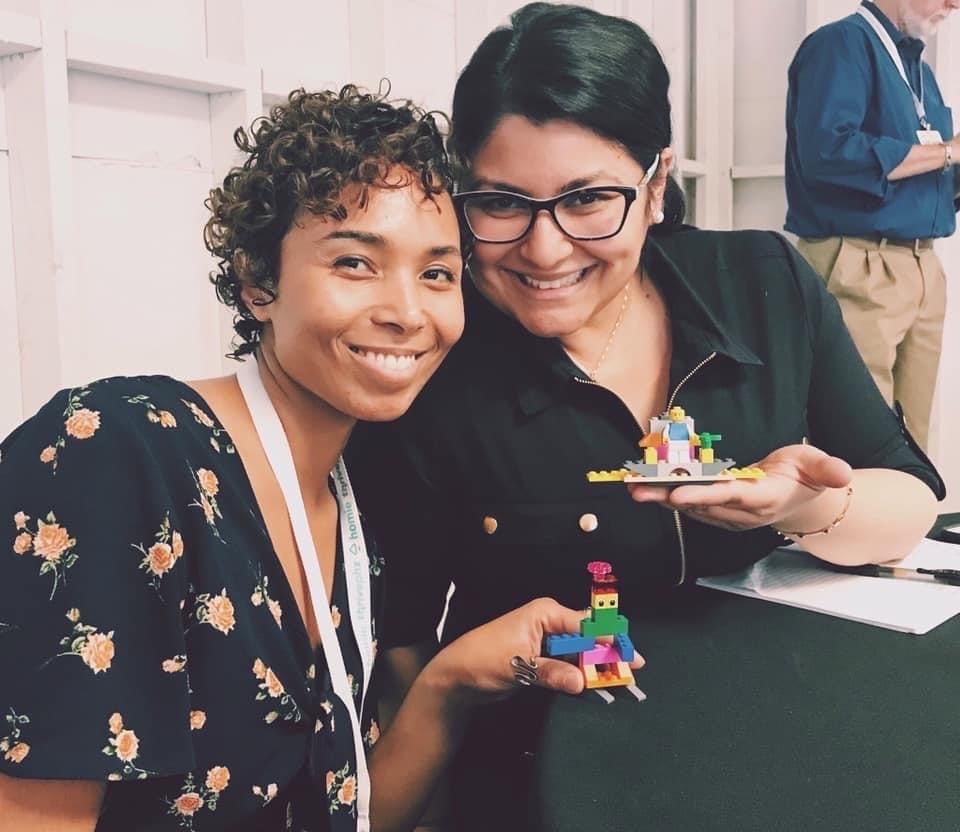Nurse Innovator Spotlight: Compassionate Care On-Demand
It was a chance encounter at a startup event for business and tech entrepreneurs—there two nurses crossed paths. “It was just startup people. But then I saw her and was like ‘wait, there's another nurse here!’” Jasmine Bhatti, PhD(c), MS, RN recalls running into Ayan Said, MSN, RN, back in 2019. That was the start of a partnership that would transform their personal lives and the nursing profession.
We continue to spotlight the incredible people behind the nurse-led projects funded by the American Nurses Foundation’s Reimagining Nursing Initiative. This month’s spotlight is on two nurse innovators with one goal: for every hospitalized patient to transition home with a skilled nurse without worrying about how to pay for it.
Bhatti and Said both worked at Mayo Clinic, but there weren’t many opportunities for them to get to know each other prior to coincidentally connecting at the 2019 Phoenix Startup Week. There they spoke about their passions and what brought them to the event. “You obviously want to step outside of the hospital,” Bhatti remembers telling Said. “You have an entrepreneurial spirit. That’s why you’re here.”
Drawing on their experience in hospital settings, they developed an idea that would make discharging hospitalized patients easier on staff and patients, alike. Bhatti originally recognized that discharged patients would often call back the same day with questions about after-care instructions. Bhatti who worked as a charge nurse recalls that’s some patients—even before leaving the hospital—would ask nurses to come home with them.
Navi Nurses was born from that observation. Navi uses an on-demand concept that allows people to request and pay for nursing care directly. Navi Nurses meet patients at the hospital and help facilitate the discharge process. So far, Navi Nurses have helped more than 230 patients—providing over 16,000 hours of care. Bhatti and Said were also able to collect data that showed their service helped reduce readmission and medication errors and improved patient outcomes. However, this service is only available to those who can afford to pay for it out-of-pocket.

With funding from the Reimagining Nursing Initiative, their project Compassionate Care On-Demand plans to convince health systems, private insurers, and government payers to make it possible for all patients to access this service.
Compassionate Care On-Demand will allow Navi Nurses to expand its care to patients who have historically been denied the ability to easily access equitable health care. "Jasmine and I are women of color, and so giving back to our communities is always at the top of our minds," Said explains. "But we had to start somewhere, and that meant building a business and then finding opportunities like the Reimagining Nursing Initiative grant. Now, we'll be able to show payer systems what we are doing, so people who can't afford Navi get a chance to experience this type of care."
Bhatti hopes the project can show that this service—when made available to everyone—significantly improves patient outcomes, “especially for people who are typically marginalized or more vulnerable. And if that's the case, then this is the first step we can take towards providing an equal level of care across all people.”
The care model was designed with patients and nurses in mind. They hope to demonstrate their project can be scaled and inspire nurse entrepreneurs to adopt their model. But they aren’t only thinking about future nurses. Their staff have reported less burn out and more job satisfaction. Each of their nurses’ expertise is carefully matched with a patient’s needs, allowing Navi’s nurses to practice under the full scope of their licensure. Additionally, Navi Nurses’ model means nurses pick up shifts when they want. “Not only do they get to pick their schedules, but they get paid really well. The other exciting thing is that we're building a community,” Said shared.
Bhatti and Said agree there is collective power in feeling good about the work you do—and that can inspire nurses to look for opportunities within the profession where they feel fulfilled. The grant will also be used to understand how to retain nurses. Said asserts that “Nurses are valuable, and that's what we are showing.”